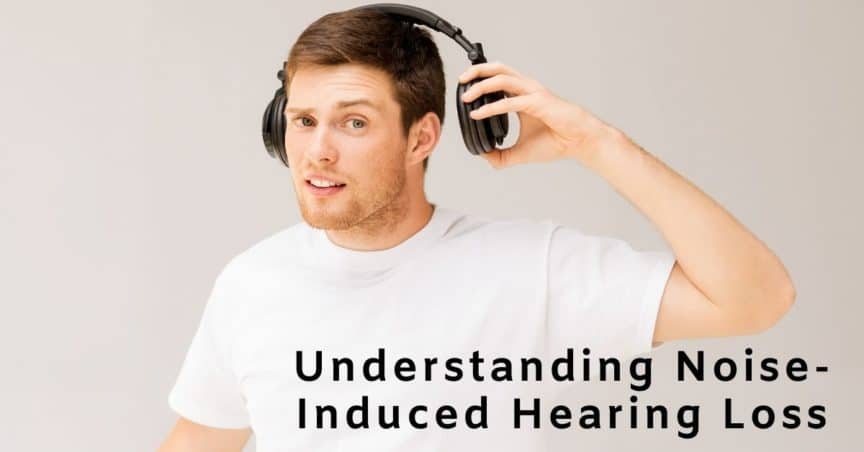- Occupational Hearing Hazards - April 27, 2020
- Understanding Noise-Induced Hearing Loss - April 18, 2020
- Understanding Noise-Induced Hearing Loss - April 12, 2020
Hearing Loss affects Over 5% of the world’s population or 466 million people. While the most common cause of hearing loss is age related hearing loss affecting one third of seniors in the U.S. alone over 65, younger generations are also at risk for hearing loss. Noise induced hearing loss (NIHL) can be a huge risk to our ears and can affect us anytime we are exposed to harmful noise.
What is Noise Induced Hearing Loss?
Every day we encounter sounds. So many sounds bring us joy including the chirping of birds, the gentle rustle of leaves blowing in the wind, or our favorite song playing on the radio. We become more at risk for noise induced hearing loss as our world has become louder than ever before. Today there is more traffic, more construction and more appliances in our lives than ever before. We are now more subject to what has been coined “noise pollution”. With infinite sound information streamed endlessly from our computers and smartphones we are often the biggest culprits in exposing ourselves to dangerous levels of sound. This is because it is not just the level of the sound that we are exposed to but also the length of exposure. We experience noise on the street, during recreation at home and at work.
How NIHL Affects Your Hearing
NIHL can happen suddenly or gradual depending on the kind of exposure. When you are exposed to harmful sounds day in or day out at a lower decibel level this can slowly diminish your hearing over time making it easy to not even realize you are dealing with hearing loss. NIHL can also happen very quickly when exposed to a brief sound at a high decibel level such as an explosion or gunshot. For this reason noise-induced hearing losses, and tinnitus, (a ringing in the ears with no external source) are the top two health conditions suffered among military veterans. It is important to understand that no matter what way your ears are affected by NIHL the results are irreversible.
Decibel Levels and Hearing loss
How do you know how loud is too loud? Sounds are measured by decibels and any sound that exceeds 85 decibels can start to cause noise induced hearing loss. The higher the decibel level, the faster and the more risk your ears face of damaging your hearing loss. Sounds like gunshots can reach decibel levels of 150 dB or more! Music concerts are notoriously loud often causing tinnitus and eroding away hearing loss, however sometimes the appliances in your house you use daily can be loud enough to damage your hearing. Household lawn mowers and leaf blowers, can reach levels around 100-110 dB.
Hearing Protection
Anyone at any age can suffer from NIHL depending on the level of exposure. Often one of the most dangerous places for our hearing is the work place. When people work day in day out in an industrial setting like a factory or construction site we become at a great risk for developing hearing loss. The National Institute for Occupational Safety and Health (NIOSH) has recommended that noise exposure must be controlled below a level equivalent to 85 dB for eight hours to minimize occupational noise induced hearing loss. At 100 dB, NIOSH recommends less than 15 minutes of exposure per day. This can often be controlled using hearing protection. Most hearing protection comes in the form of earplugs, which fit in the ear canal or earmuffs, which fit over the entire ear. Both models of hearing protection can reduce a sound by 15-30 decibels. Hearing protection should be used anytime you expose yourself to a harmful sound whether it is at work or at home. It is a good idea to anticipate the sounds around you and carry earplugs with you at all times.
Treating Noise Induced Hearing Loss
If you have suffered from NIHL the damage is permanent, however hearing aids have been proven time and time again to help treat this condition. Hearing aids amplify the sounds around you making it easier for you to hear. If you suspect you are dealing with NIHL contact u Palm Beach Hearing Associates today to set up a hearing test and get back to hearing the world around you.

